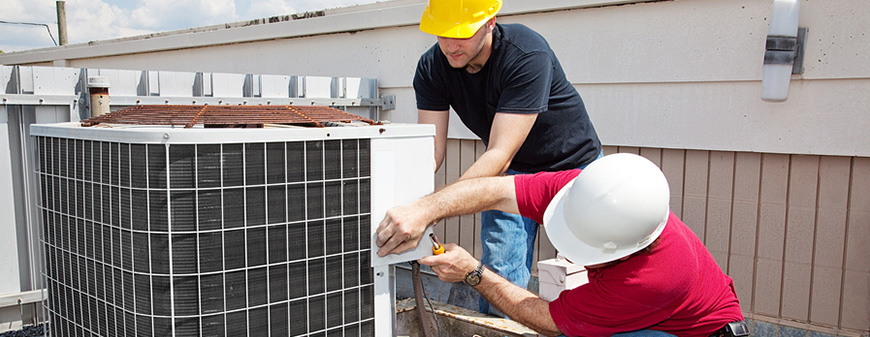TWS is a Great Training Option for Everyone
Learn more about how we can prepare you to advance your career.
Picture yourself sitting in classroom for four years, only to graduate with tens of thousands of dollars in debt and an uncertain future.
Does that scare you? Wouldn’t it be better to enroll in school, graduate months later and have an in-demand career waiting for you, with as little debt as possible?
If you don’t think that’s possible, think again. Trade careers might be your ticket to this kind of future.
Trade careers aren’t going away anytime soon, either. In fact, a skilled trades worker shortage continues to linger throughout the country, a result of retiring baby boomers, a booming energy sector and diminishing popularity within the educational field.
Have You Considered a Career in the Skilled Trades?
Fill out the form to recieve a no obligation info packet.
A career is never a guarantee, no matter what field you enter. But some industries have more career potential than others, and students looking for a viable alternative to college after high school are not out of luck. Despite popular opinion, careers without college are possible, and we’ve got a few for you to check out.
Welder

Do you like working with your hands and watching flashy sparks fly?
Welders apply heat to fuse, cut and repair metal parts. They must also now how to read blueprints, calculate dimensions and prepare and maintain equipment. The vast majority works in manufacturing.[1]
Welding is a hands-on job, so if you want to weld, you need to have these abilities:

New: Industrial Maintenance
Learn About Our New Advanced Industrial Maintenance Program
Tulsa Welding School is proud to announce our newest program offering available at our Houston & Dallas Metro Campuses – Advanced Industrial Maintenance Technology! Learn the skills you need to take on the industries of manufacturing, distribution, energy production and facility maintenance in as few as 7 months.
- Arm-hand steadiness
- Near vision
- Control precision
- Multi-limb coordination
- Manual dexterity
- Depth perception[2]
To become a professional welder, you need a certification. It so happens that the welding training program at TWS can teach you to become a professional welder in seven months.
This program gives you the opportunity to learn several welding techniques, grooming you to be ready to apply for an entry-level position in your desired field after graduation.
Electrician

Electricians are responsible for the repair, maintenance and installation of electrical equipment. This may include electrical power, communications, lighting or control systems.
Electricians work wherever power is needed, but here are a few common environments:
- Homes
- Businesses
- Offices
- Factories
- Public facilities
Electricians must bring a variety of skills to the job:
- Troubleshooting
- Active Listening
- Critical Thinking
- Problem Solving
- Mathematics
- Deductive & Inductive Reasoning[3]
You will need at least a high school degree or equivalent to begin the road to becoming an electrician. Electricians must also keep up with and follow state and local building regulations, as based on the National Electrical Code.[4]
Electricians who can competently perform a large variety of tasks have the most advantage in the labor market, which is why electrical technologies programs are so sought after.
A worthwhile electrician training program should cover all of the fundamentals of the electrician profession:
- Electricity and solar
- Residential and commercial wiring
- Safety processes
- Different types of equipment
You can graduate from this program in as little as seven months.
HVAC Technician

Heating, ventilation and air conditioning (HVAC) technicians install, maintain and repair HVAC systems. This means that they ensure that a building’s temperature, humidity and air quality is controlled.
HVAC techs also inspect and test these systems and their components, consult customers on improving system performance and repair or replace malfunctioning parts.[5]
This job requires a broad skill set:
- Troubleshooting
- Interpersonal Communication
- Physics
- Problem Sensitivity
- Finger Dexterity
- Near Vision[6]
Due to the complexity of this field, most who seek to work in HVAC enter a training program that focuses on heating, air conditioning and refrigeration.
HVAC is a complex field that requires technical knowledge to thrive in, which is why HVAC training programs are in such high demand.
Upon completion of this 7-month program, you can pursue a huge variety of HVAC-related careers:
- Refrigeration technician
- Commercial transportation
- Refrigeration troubleshooter
- HVAC/R service technician
- Low-temperature field technician
Solar Panel Installer

As a solar panel installer, you assemble, install or maintain solar photovoltaic (PV) systems on rooftops. The job of a solar panel installer can also include measuring, cutting, assembling, and bolting structural framing and solar modules.
Solar panel installers also use sealants to protect the panels from weather. Sometimes they perform some electrical work, too.[7]
This line of work requires the following skills and abilities:
- Active Listening
- Critical Thinking
- Problem Sensitivity
- Visualization
- Near Vision
- Deductive Reasoning[8]
Solar technology has been booming over the past few years, with new innovations that have lowered prices and increased energy efficiency for consumers.
While a high school diploma or equivalent is the minimum requirement for this career, prospective employees typically need at least a few months of working experience.
The electromechanical technologies program at TWS can be completed in 9 months. It features a solar energy technology module that provides an overview of PV science and concepts and processes of common solar-powered systems.
Your friends might need to attend a four-year college to pursue their dreams. But your dreams are your own, and they aren’t beyond your reach, even if you don’t want to walk the same path as your peers. Trade school programs can be completed in under a year, and if you play your cards right, you can transition to a stable, lifelong career right after graduation.
Are you curious about more differences between traditional college and trade schools? Check out our infographic that compares trade school to community college.
[1] https://www.bls.gov/ooh/production/welders-cutters-solderers-and-brazers.htm#tab-2
[2] https://www.onetonline.org/link/summary/51-4121.06
[3] https://www.onetonline.org/link/summary/47-2111.00
[4] https://www.bls.gov/ooh/construction-and-extraction/electricians.htm#tab-4
[5] https://www.bls.gov/ooh/installation-maintenance-and-repair/heating-air-conditioning-and-refrigeration-mechanics-and-installers.htm#tab-2
[6] https://www.onetonline.org/link/summary/49-9021.01
[7] https://www.bls.gov/oes/current/oes472231.htm
[8] https://www.onetonline.org/link/summary/47-2231.00
This blog has been labeled as archived as it may no longer contain the most up-to-date data. For a list of all current blog posts, please visit our blog homepage at https://www.tws.edu/blog/







